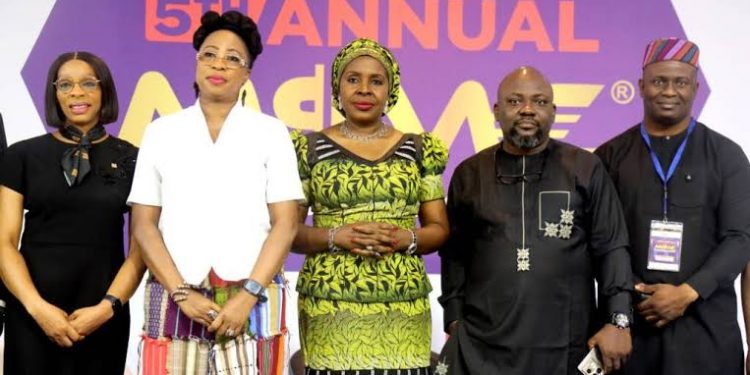Stakeholders from finance, private enterprise, and development institutions have reaffirmed their commitment to tackling the key barriers hindering the growth of Micro, Small, and Medium Enterprises (MSMEs) in Nigeria.
At the 5th Annual MSME and Start-up Summit 2025, convened by The Economic Forum Series in partnership with News Central TV, leaders from major institutions called for urgent, collaborative efforts to close the financing gap, improve digital access, and build a stronger policy environment for Nigeria’s 39 million MSMEs. These enterprises contribute nearly half of Nigeria’s GDP and employ over half the country’s workforce, yet more than 65% of them remain informal, unregistered, and unable to access credit.
The Deputy Managing Director of Access Bank Group underscored the urgent need for inclusive financial systems. She noted that SMEs remain a backbone of the economy but face persistent difficulties due to limited access to financial services and lack of collateral. Access Bank, she explained, is deploying cash flow-based lending models, digital banking solutions, and targeted capacity-building programs tailored to informal entrepreneurs.
The bank’s strategy, she said, rests on three pillars: leveraging cash flow analytics instead of collateral to assess creditworthiness, forging partnerships for wider resource access, and deploying digital platforms to expand financial inclusion and training.
Echoing these sentiments, Mastercard’s Country Manager and Area Business Head for West Africa reaffirmed the company’s long-term goal to connect 1 billion people, including 100 million MSMEs, to the digital economy. Already, Mastercard has supported 37 million female entrepreneurs globally. She emphasized that digital transformation is not just about convenience but is key to enabling inclusive growth and long-term prosperity.
Mastercard’s interventions include mobile-first payment systems, contactless technologies, digital identity verification, and AI-powered tools like Mastercard Small Business AI for real-time business insights. The company also launched the Entrepreneurs Odyssey, a digital education platform for MSMEs, aiming to equip small businesses with the knowledge and tools to succeed.
She highlighted Mastercard’s multi-stakeholder collaborations with organizations such as Access Bank, the African Development Bank, and ECOWAS, designed to provide digital infrastructure, credit access, and financial literacy to underserved businesses. The focus, she added, is on women, youth, and rural MSMEs who are often excluded from mainstream economic systems.
The Director-General of the Lagos Chamber of Commerce and Industry also called attention to the critical role of the private sector in job creation and innovation. She emphasized that for MSMEs to thrive, Nigeria must address key issues like inadequate infrastructure, inconsistent policy enforcement, and the high cost of power.
She advocated for greater policy coherence, ease of doing business, and infrastructure development. According to her, the LCCI continues to engage in evidence-based research and public-private dialogue while pushing for reforms in tax policy, trade facilitation, and enterprise support. She also highlighted the importance of supporting innovation hubs, business parks, and Export Processing Zones as a means to create inclusive, enterprise-driven growth.
Finally, the Managing Director of the Bank of Industry (BOI) stressed the role of digital financing in driving growth. He called for more inclusive digital financial services that meet the needs of MSMEs, reinforcing the message that technology, when paired with strategic partnerships and regulatory support, can unlock the sector’s full potential.
Together, the summit participants agreed that tackling the MSME financing gap—estimated at over $168 billion—will require coordinated action across the banking sector, private industry, technology providers, and government. From digital tools to policy advocacy, inclusive financing to AI-driven support, stakeholders remain united in their mission to empower MSMEs as key drivers of sustainable economic growth in Nigeria and across Africa.










